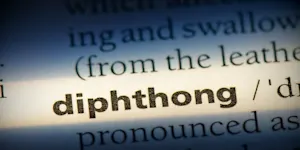What Makes This Word Tick
"Penchant" is quite the versatile term, often employed to describe a strong inclination or liking for something. It’s the kind of word you might use when discussing one's love for gardening, fine wines, or an inexplicable fondness for collecting antique buttons. For anyone with a particular taste or enthusiasm, "penchant" captures the essence of that passion beautifully.
If Penchant Were a Person…
Imagine Penchant as an amiable character who’s always enthusiastic and ready for an adventure. This person has a curious habit of diving deep into hobbies and interests, whether it’s crocheting or birdwatching. You’d find them surrounded by collections of things they love, a smile perpetually on their face and a sparkle of excitement in their eyes whenever they talk about their latest discovery.
How This Word Has Changed Over Time
While "penchant" has retained its core meaning over the years, its usage has shifted slightly with cultural trends. Historically, it often described a broader spectrum of desires, from preferences in fashion to predilections in literature. Today, it’s more casually tossed around in conversations about hobbies and interests, but its essence remains the same—an affectionate nod to one's passions.
Old Sayings and Proverbs That Use Penchant
There aren't many ancient proverbs that toss around the word "penchant" explicitly, but the sentiment is akin to sayings like "One man's meat is another man's poison," highlighting personal taste. More modern spins might include "Everyone has their quirks," nodding to the unique preferences each person holds dear.
Surprising Facts About Penchant
Interestingly, "penchant" has its origins in the French language, derived from the Old French verb "pencher," which means "to lean" or "to incline." So when you express a penchant for something, you’re essentially leaning towards it, like a plant bending toward the sunlight.
Out and About With This Word
You might hear "penchant" in casual cafes as folks discuss their newfound penchant for almond milk lattes or at book clubs where members have a strong penchant for mystery novels. It's a friendly word that feels right at home amidst conversations about life's little pleasures.
Pop Culture Moments Where Penchant Was Used
In pop culture, the word "penchant" might not take center stage, but it has made appearances in dialogue that highlights a character's unique habits or obsessions. Think of a TV detective with a penchant for jazz music or a chef with a penchant for fusion cuisine—always adding character depth.
The Word in Literature
"Penchant" may often appear in literary character descriptions, providing insight into their motivations and desires. It's favored in genres that explore personal journeys or human quirks, such as in literary fiction or memoirs where the protagonist’s inclinations are pivotal to the plot.
Moments in History with Penchant
While no historical events feature "penchant" directly, you could say that Leonardo da Vinci had a penchant for invention and painting, given his multifaceted talents. Similarly, Marie Curie’s penchant for science paved her way as a landmark figure in history.
This Word Around the World
Globally, "penchant" morphs into various ideas of preference and favoring. In French, it stays quite similar as the word "penchant," while in Spanish, you might hear "predilección". Each culture has its way of expressing these tastes, showing just how universal the idea is.
Where Does It Come From?
Derived from the Old French "pencher," "penchant" traveled through the linguistic corridors from French into Middle French and finally settled into English, bringing with it that charming air of European flair we’ve come to associate with many a borrowed word.
How People Misuse This Word
Some might use "penchant" interchangeably with words like "habit" or "custom," though it specifically implies a liking rather than a routine. It's the difference between having a breakfast habit and a penchant for pancakes.
Words It’s Often Confused With
Inclination: Suggests a natural tendency rather than a strong liking.
Predilection: Implies a preference, often longstanding and more formal.
Affinity: Conveys a spontaneous or natural liking rather than a strong and enduring passion.
Additional Synonyms and Antonyms
Synonyms for "penchant" include fondness, taste, partiality, and preference. Its antonyms are indifference, apathy, and disinclination.
Want to Try It Out in a Sentence?
Given her lifelong love of travel, it's no surprise that Lisa has a penchant for collecting vintage travel posters from her favorite destinations.
















